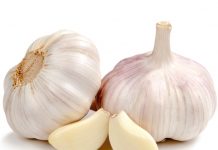GERD or Gastroesophageal Reflux Disease is also known as acid reflux which in other terms we call as acidity. We even feel heartburn in extreme conditions. It is acid reflux when you feel it occasionally but if it happens more often then it might be GERD.
It occurs when the lower gate of the lower esophagus or sphincter relaxes and creates regular stomach acids flow through your esophageal tubes. This can damage your esophageal lining, lung tissues, throat and even vocal chords; in addition to these, you may get ulcers as well. There are plenty of things where GERD patients go wrong. Thus, today we will look into the important do’s and don’t of a GERD patient.

Are GERD and Heartburn Same?
No, they are not. In fact, heartburn is a symptom of GERD while GERD is the chronic acid reflux which is a disease. However, it is not necessary that having heartburn means you have GERD. You have to visit your doctor to confirm about the same. Before that you can check for few other symptoms like pain behind your chest, bubble feeling right behind your breastbone, bile juice oozing into your mouth slightly which is sour in taste but not vomiting, little pain in the throat while swallowing food, coughing, sore throat, wheezing, etc. If these symptoms are frequent then you might have GERD.
The Do’s and Don’ts
- Take Vitamin B12
Deficiency of vitamin B12 is mostly found among GERD patients especially those who take antacid to treat acid reflux usually get deficient of this vitamin. The stomach acids are required for the absorption of this vitamin but if you take medication like antacid to treat it then it interrupts the absorption of vitamin B12. The deficiency of this vitamin results in many health issues like anemia, memory loss, chronic fatigue and other harmful symptoms.
- Avoid Chocolate
Chocolate consists of many ingredients which don’t go with acid reflux. Caffeine, theobromine, bitter alkaloids, high-fat content in it is not good for you. If you want to have one then opt for a dark chocolate instead which is full of antioxidants.
- Low Fat Diet
Fatty foods are known to slow down the digestion. They take time to digest and slowly release nutrients into the blood and thus are not suitable for those suffering from GERD. Prefer foods which can be digested easily and sooner. Opt for light foods and feel light.
- No Fried Foods
Oily foods and fried foods are rich in fat and so are heavy in nature. Try to avoid oil as much as possible and roast the food instead of deep-frying them. Fried foods can be a real pain for those suffering from GERD.
- No Caffeinated Foods
As said before caffeine in chocolate is restricted, and this caffeine is definitely present in coffee. Having a cup of light coffee (latte) is fine but having cappuccino or espresso every few hours throughout the day can worsen your condition. Avoid coffee as much as possible.
- Avoid Starchy Foods
Starchy foods or those rich in carbohydrates are difficult to digest. If this stays in your stomach for long hours then it can further stimulate stomach acids. So, always eat foods which are easy to digest.
- Eat Fermented Foods
Foods which are aged and fermented can stabilize the stomach acids and have a good effect on your stomach. So prefer foods like pickles, saukerkraut, kimchee, etc.
- Avoid Alcohol
Alcohol is definitely not acidic but it loosens lower valve which controls the flow of stomach acids. So, avoid alcohol completely.
- Intake Probiotics
These are the substances that support healthy bacteria and prevents heartburn and other stomach problems. This can be found in yogurt and kefir. If you are lactose intolerant then prefer supplements.
- Avoid Fatty Dairy Products
Fatty dairy product like sour cream, ice cream, soft cheese, whole milk are again hard to digest and so contribute to GERD worsening the condition. Prefer lower fat dairy products instead.
- Control The Portion
Never eat in large quantities. You can take a small portion of the food and save the remaining to eat later because you must eat small portions to digest it quickly. Moreover eating every 2 – 3 hours is recommended.
- Avoid Citrus and Acidic Juices
Citric fruit juices like orange juice, lemon juice, grapefruit juice, tomato juice, etc. should be avoided. Not only juices but you should avoid them as much as possible in your diet.
- Maintain A Food Diary
We usually do not remember what we ate the other day. When you are suffering from GERD, it is best to maintain a food diary so that you can take a look at what you ate that caused problem whenever needed.
- Avoid Soda
Anything that uses baking soda or drinking soda can worsen the acid reflux. It is best to avoid it as much as possible.
- Avoid Processed Foods
Processed foods and refined foods contain no fiber and these are required to keep your digestive system clean. Opt for whole foods like brown rice, whole sugar, etc.
- Avoid Fatty Meat
As said before anything that says fatty should be avoided. Avoid meats like beef and pork and prefer lean meat like turkey breast which is healthy for the heart and doesn’t cause heartburn that much.
- Drink Apple Cider
It balances stomach acids and so, prevents GERD. Even if you are already suffering with it, apple cider vinegar can relieve the burning sensation. Few tablespoons of organic apple cider vinegar mixed with 8-ounce water should be taken after meals daily.
- Do Not Sleep After Meal
After having your meal usually, people either sit or sleep which should be done. It’s best to walk around after having your meal so that your body can utilize some energy to process the food you have ingested.
- Exercise Regularly
Doing yoga or light aerobic exercises regularly can boost your metabolism so that the food you have ingested can get digested quickly and easily. But sitting down and lying down has the opposite effect. It takes so much time to digest your food and if you are lying on the bed the chances of the stomach juices to flow towards the throat is more.
- Avoid Sleeping on Your Right Side
Usually many suffer from heartburn during the night. You know that your stomach is towards your left; if you sleep on your right side the gastric juices flow through the esophagus and will give your heartburn. Always sleep on your left side so that these juices stay in the stomach.
So, these were few do’s and don’t of a GERD patient following which he/she can avoid the heartburn and acid reflux most of the times and can calm down the stomach to some extent.













